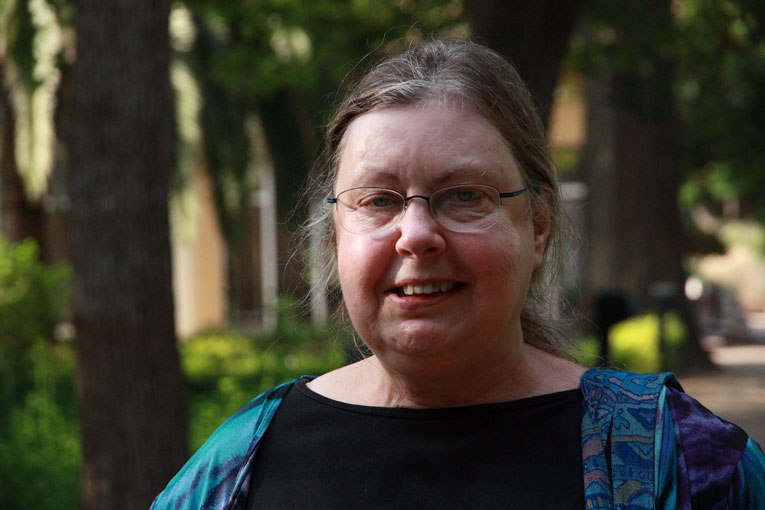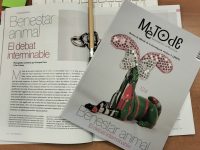
 Lucía SapiñaSusanna Priest at the Botanical Garden of the University of Valencia, which she visited after her conference. Lucía SapiñaSusanna Priest at the Botanical Garden of the University of Valencia, which she visited after her conference. |
||
|
Science Communication editor and Professor of Communication at the University of Washington Susanna Priest claimed on September 25th that «people must know how to interpret science» when you write a scientific article in any media, no matter what the scope is. According to Professor Priest, the role of the scientific journalist is to «interpret science, not translate it». New technologies and the Internet era have evolved our communication model. Therefore, in the words of Professor Priest, «journalism no longer has a single voice with authority» and the interpretation of the journalist is needed to help the audience understand scientific progress and news. With the appearance of multiple and novel platforms –Priest especially insisted on blogs– Internet got stuffed with sceptical or even false ideas. «Anyone can publish on the Internet, without scientific education and often for business purposes», the researcher argued. To fight this kind of fraudulent information, and especially with scientific information, today’s society needs what Susanna Priest calls «critical science literacy»: a basic knowledge about science to be able to tell real news from fiction. And the journalist must provide this scientific literacy. |
«Anyone can publish on the Internet, without scientific education and often for business purposes» |
|
 Lucía Sapiña Science Communication editor during her intervention at the «Science and the Press» seminar. Lucía Sapiña Science Communication editor during her intervention at the «Science and the Press» seminar. |
«Today’s society needs critical science literacy: a basic knowledge about science to be able to tell real news from fiction» |
|
|
As the researcher asserted, the new communicative landscape «is fantastic for democratization», although she highlighted that a lot of the information on the Internet is sponsored and depends on the companies it advertises. «The Internet allows commercial interests to aim at you», she insisted during her conference. «Science is politics, there is a huge ideological influence and a lot of interest groups». According to Susanna Priest, we can find any information on the Internet to support our ideas: articles and news in sceptical or untrue blogs, where unverified data and statements from alleged scientists are exhibited. Finally, Susanna Priest talked about climate change, one of the topics that hide the most uncertainty and doubt, where it is easiest to deceive the reader. The researcher in communication stood by the existence of climate change: «the world as we know it is changing in ways that threaten our ability to be nourished», and she insisted on the need to have scientific journalists who develop science literacy in readers so they know how to separate verified reasoning from pure fiction. Eva Maria Javier. Student of Journalism at the University of Valencia. |
||





